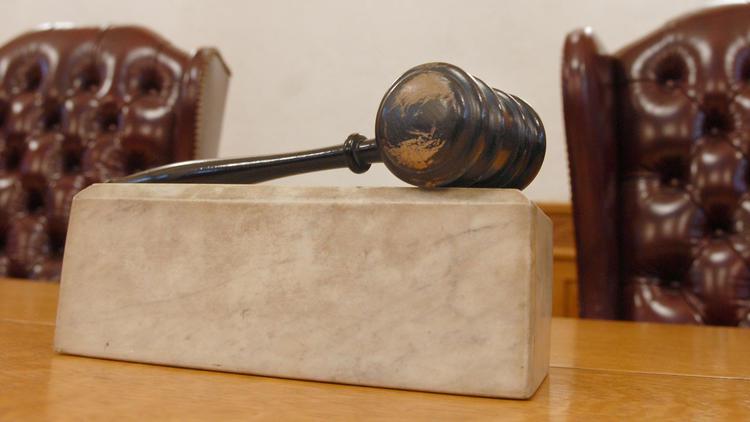|
"Why do you have to name names," Pennsylvania Supreme Court justice asks in priest case
By Peter Hall
Lawyers fighting to protect the identities of nearly two dozen Catholic priests implicated in a grand jury report on the sexual abuse of children urged the state Supreme Court on Wednesday to end the case and adopt the report with the priests’ names blacked out, keeping the allegations secret forever. If the court does so, the state attorney general’s office argued, it would damage the grand jury process, costing the office a valuable tool. The grand jury report, released Aug. 14, identified 301 priests accused of abusing more than 1,000 children in six dioceses over several decades, with all but a few cases too old to prosecute. It also described efforts by church officials to cover up allegations and discredit victims. The court agreed to temporarily withhold the identities of priests whose lawyers say the report would “name and shame” them, violating their constitutional right to defend themselves in the process. The justices must decide whether to keep the priests’ names concealed or reopen the grand jury process, giving the priests an opportunity to present evidence. Justice David Wecht asked Deputy Attorney General Ronald Eisenberg why the state doesn’t simply accept the redacted report as the final version as the priests’ lawyers have requested. “I don’t understand the need to fight about these two dozen people instead of putting a bookend on it and getting some better law in Harrisburg,” Wecht said. Accepting the priests’ argument would limit the government’s ability to hold powerful institutions accountable to the public, Eisenberg said. “There has to be a legal rationale for ending the case at this point, and the only rationale the petitioners have put forth is a constitutional limitation on the power of the grand jury,” he said. Justice Christine Donohue asked, “Why do you have to name names?” Eisenberg replied that a report that doesn’t identify its subjects has less impact than one that reveals an investigation’s target. If the Supreme Court were to accept the priests’ argument that there is no remedy for the violation of their rights, this grand jury investigation would be Pennsylvania’s last, he said. Justice Max Baer questioned the priests’ claims that they would become notorious if they were named, suggesting the average Pennsylvanian would be hard-pressed to name any of the priests implicated in the report. “They’re not Bill Cosby. They’re not Jerry Sandusky. They’re just another one of the 300 priests who are named in that report,” he said. Arguing on behalf of the priests, Justin Danilewicz said he “shudders to think,” what might have happened if his clients had been identified. He noted there have been reports of attacks on priests and Catholic churches and schools since the report’s release. Wecht asked Danilewicz whether the priests’ concerns would be addressed by a change in the law to prohibit individuals not charged with crimes from being identified in grand jury reports. “Would that solve the problem?” “It would go a long way,” Danilewicz said. “It would be appropriate.” The problem isn’t with the grand jury process, which was intended to help prosecutors uncover crimes by people who then get a chance to defend themselves, Danilewicz said. The issue is when that tool is “in the wrong hands, used in the wrong way,” he said. In response to the priests’ claims that releasing the report would unfairly damage their reputations, the Supreme Court in July ruled that the Pennsylvania Constitution provides a right to due process for people implicated in wrongdoing as a result of grand jury investigations. It directed the priests’ attorneys and the attorney general’s office to determine how to ensure that. The attorney general’s office, which oversaw the grand jury proceedings, argued the grand jury could be recalled or its findings presented to a new panel, giving the accused priests a fair hearing. Wecht and Justice Debra Todd questioned whether the court has the authority to allow that, because it’s not spelled out in the grand jury law. To do so would require the court to usurp legislative power and rewrite the law. The chance for priests to try to clear their names before the grand jury has passed, their lawyers have argued. The age of the allegations means essential evidence and witnesses are no longer available. The report’s identification of the clergy collectively as “predator priests” effectively stigmatizes them as sex offenders without a criminal conviction, they argue. They also claim the attorney general’s office put on an “incessant media campaign” opposing the priests’ efforts to protect their reputations, which “has amplified public hostility … and dealt the final death blow to any lingering hope for due process.” Wecht suggested the flaws in the grand jury process raised in the case are a matter for legislators to tackle. In its report, the grand jury recommended legislative reforms including the elimination of the time limit for criminally prosecuting child molesters, creating a two-year window for older accusers to file lawsuits and clarification of the law requiring certain people with responsibility for the safety of children to report suspected abusers. Since the report’s release, more than 1,100 people have contacted a hotline for victims of childhood sexual abuse established by the attorney general’s office. And the state House on Tuesday passed the grand jury’s recommendation for a two-year window for lawsuits, leaving it in the Senate’s hands. The Supreme Court did not indicate when it would rule on the report. Contact: peter.hall@mcall.com
|
.
Any original material on these pages is copyright © BishopAccountability.org 2004. Reproduce freely with attribution.
